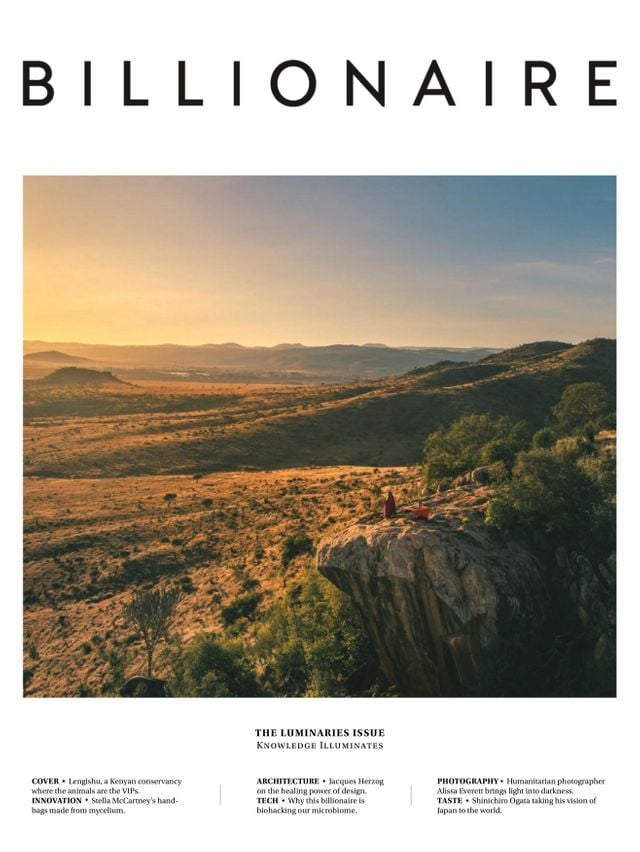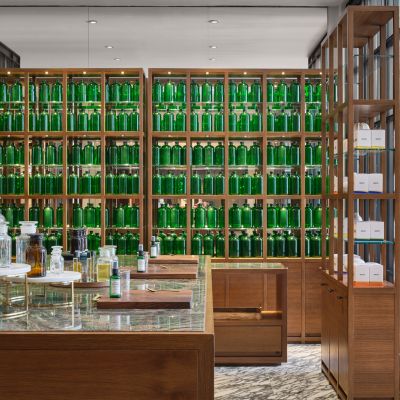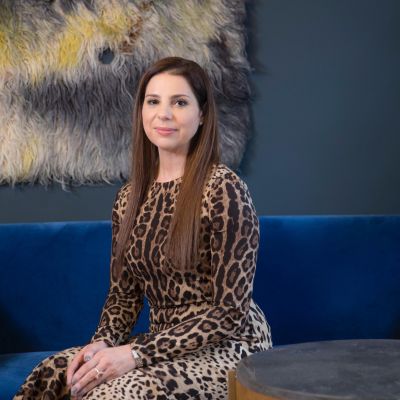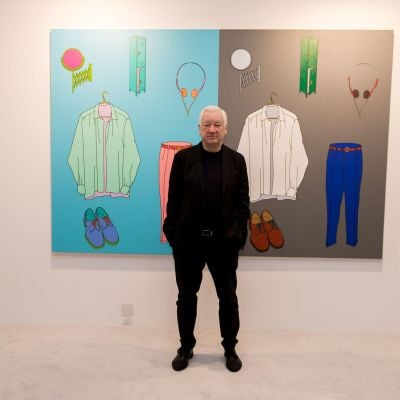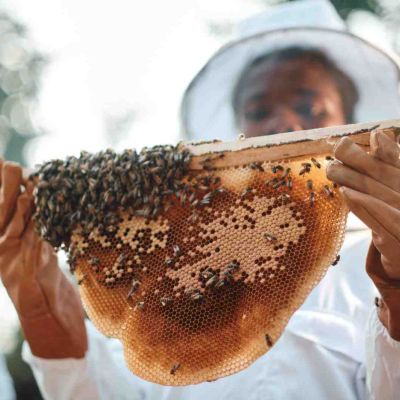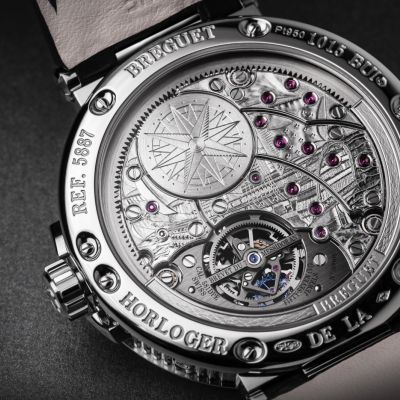Gut Instinct

Tech billionaire Naveen Jain has invented a way to use tech to understand people’s dietary needs.
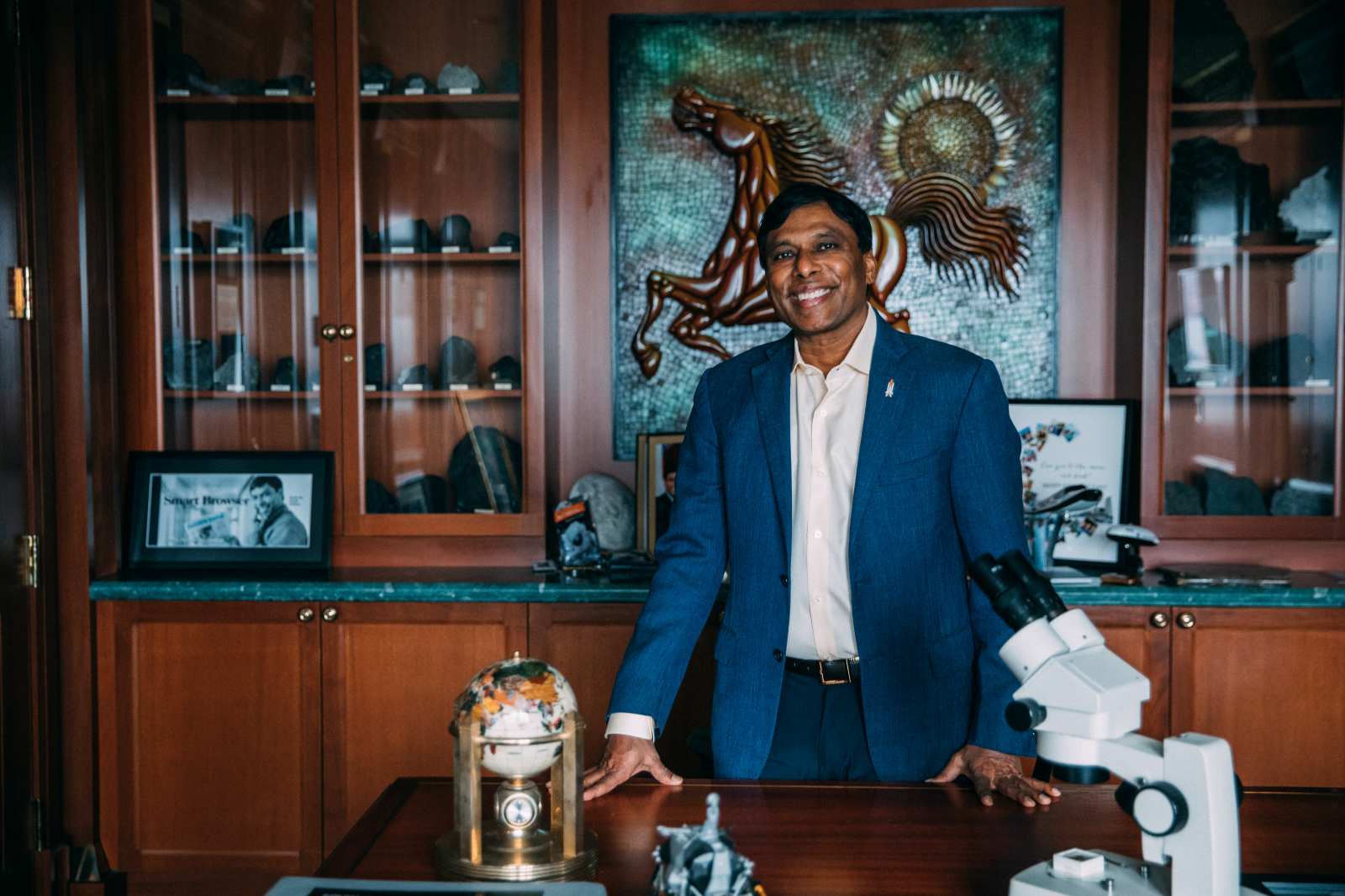
Naveen Jain in his office (c) Nick Onken
“Let thy food be thy medicine and medicine be thy food,” is the saying attributed to the Greek physician Hippocrates, often considered the father of Western medicine.
It is a poetic statement of a simple truth: one’s health is rooted in what one consumes. For his seventh business venture, tech-entrepreneur Naveen Jain found gold in this wisdom. “It’s not a new concept. This is prevalent in long-time practices such as Ayurveda. All Viome does is help people understand their own bodies and their dietary needs through technology,” Jain says.
Founded in 2016, Viome is a take-home kit that tests one’s gut microbiome health. The microbiome is a collection of microbes, such as bacteria, fungi and viruses that naturally live on and inside our bodies. These little organisms pack a big punch in both our daily and long-time health and a study conducted by Harvard medical school vividly outlines the close relationship between one’s gut and mind.
“But, there’s a twist,” Jain says. “Not everyone’s microbiome is the same, which means that what may be good to one person may not be good for another. What may be good for you now, may not be good for you seven years from now.”
This is where Viome flexes its technology. Once you receive your at-home kit, you take samples of your stool and blood. Package it all up, send it back, and wait about two-to-three weeks for your results to be sent to the Viome app. In the processing stage, Jain’s in-house team of scientists, translational scientists, nutritionists, researchers, and doctors get to work, listing and understanding your personal microbiome make-up. In the end, they thoroughly list out foods that benefit you, don’t benefit you, and why. Think of it as a simple at-home nutritionist.
But, couldn’t one fix their ailments with a simple pill? “Why would pharma companies want to make a solution and give up their lifetime customers? If I was only reliant on drugs, I’d be popping pills like grapes until I died,” Jain says.
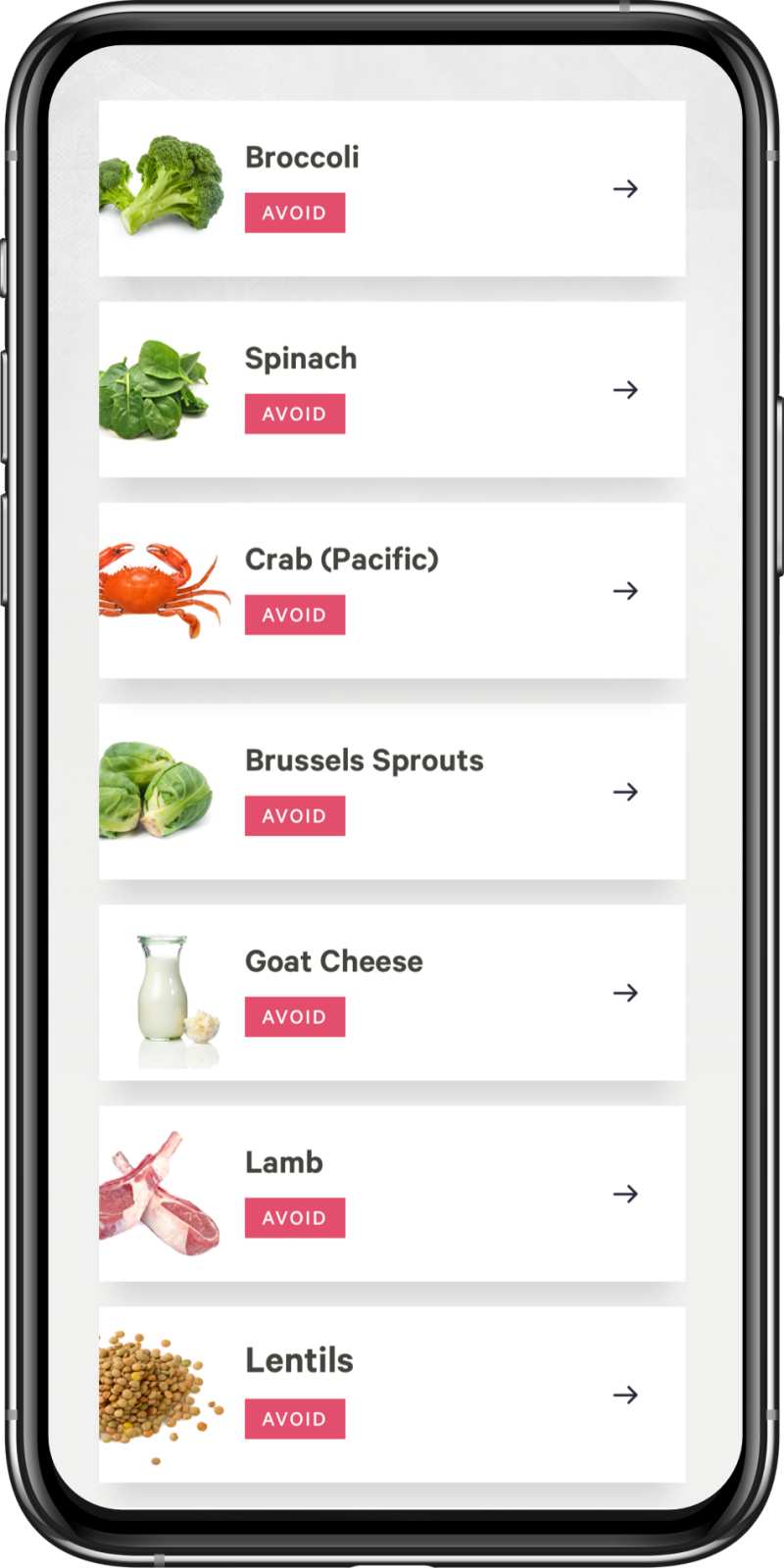
In addition to dietary suggestions, Viome also analyses one’s biological health based on internal health. “I’m technically 63, but my biological health is 50. I have more energy than I ever had before,” says Jain, who has been using the Viome app for six years and saw his biological age plummet after a few months of use.
“I remember I was told to avoid broccoli and Brussels sprouts and I was convinced that this was a mistake because these were ‘healthy’ foods but I decided to follow it. I felt immediate relief in bloating, a symptom I didn’t even think I had until I realised what good feels like. For me, I experienced improved digestion and people are always telling me how young my skin looks. I have a lot of energy. Sometimes the changes are very quick and other times, you realise one day you have not been as tired, and you haven’t needed to nap in months.”
With a price tag of US$199 for the Health Intelligence Test, Viome is not for the masses. This test reveals how your gut microbiome health is impacting other areas in your body and includes over 30 scores related to gut microbiome health, biological ageing (how you’re ageing internally) cellular function health, immune health, energy levels and stress response. There are also options for a monthly subscription of customised vitamins, probiotics and prebiotics, which range from US$199 a month to US$59.95 a month.
Last year, Viome raised US$54 million in a pre-series C convertible funding from existing investors and new investors. This followed a US$56 million series B round in 2019, bringing the company’s total funds raised to date to over US$125 million. Viome is now raising an additional US$150m to fuel further growth.
As a serial entrepreneur and with a net worth that has been estimated at US$8 billion, Jain is evidently someone who is good at asking questions. But, in his book, it is the answers to the simplest questions that leads to the greatest innovation.
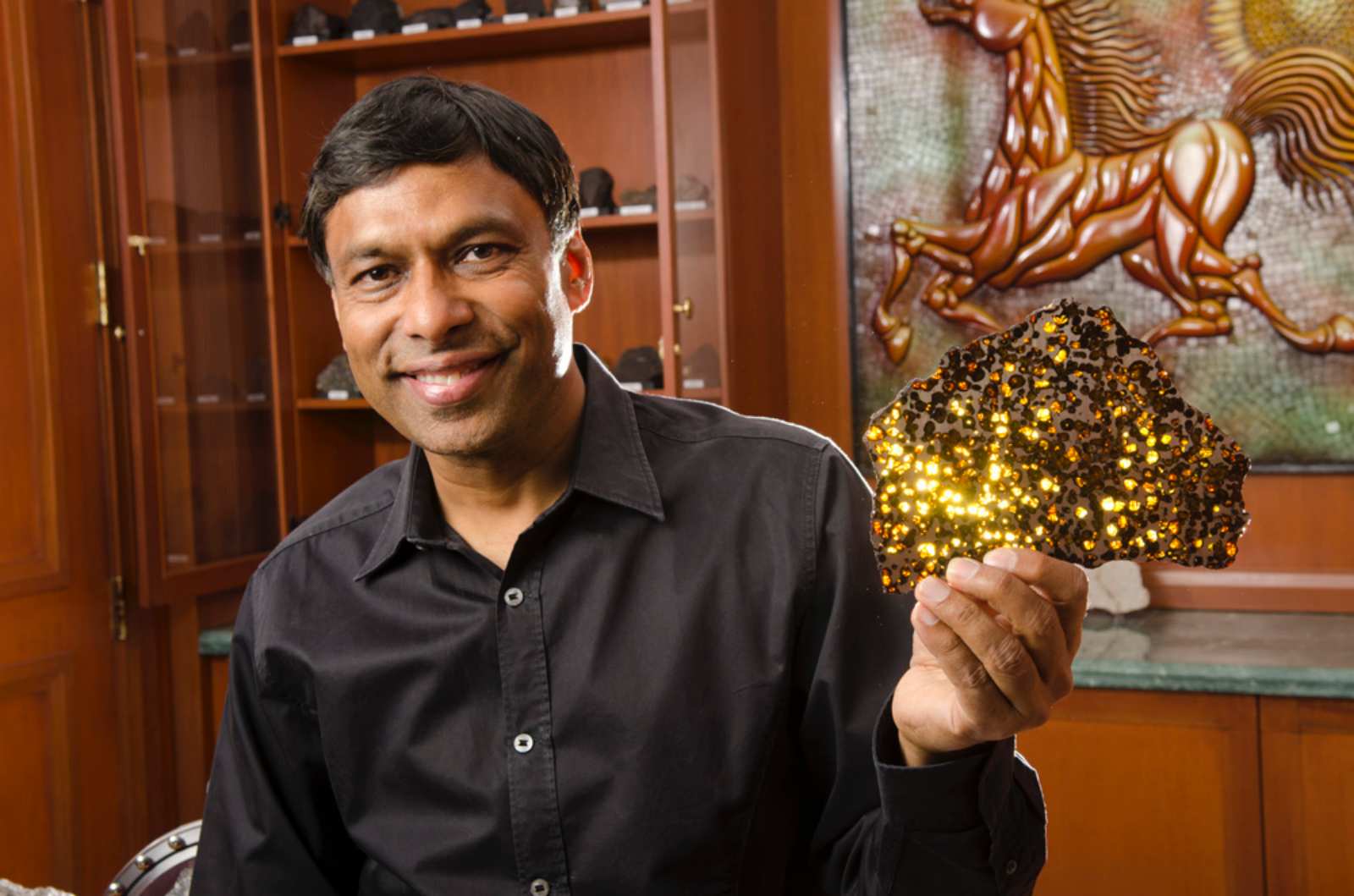
Like Viome, his former business venture Moon Express, which sends government-approved spacecraft beyond Earth’s orbit to mine materials, consisted of simple questions, too. “One of the questions people would always ask is: ‘How are you going to grow food on the moon?’” With questions like these, Jain finds it better to go back to the very basics that are rarely questioned. “I then asked a question that could come out of a two-year-old: ‘Why do we need to eat?’” Simple. Humans require energy, energy is acquired from food.
“I then asked, how can one attain energy in different ways? When you ask different questions, it opens up many more ways to solve problems and the possibility for solutions grow.”
(Jain’s solution to the problem of food on the moon was “we could get energy from radiation, like many bacterial species who thrive in radioactive environments; or we can get energy from photosynthesis like plants do. We could get our nutrients from the local sources on the moon such as water”.)
Perhaps this is why Jain makes for an industry disruptor. Viome is backed by medical professionals of all sorts. There’s Dr Stephen Barrie, an internationally recognised physician who serves as the head of Viome’s clinical nutrition. Momo Vuyisich, a scientist with over 25 years of R&D experience serves as the company’s chief science officer. Paris Hilton, while not a medical professional, is on board, too, as an investor. “I didn’t ask or pay her to try it; she just tried it and said it helped her tremendously.” Other high-profile fans include Deepak Chopra, Tom Hopper, Matthew Noszka, Daymond John, Vinod Khosla, Jack Dorsey, Ev Williams, Dr Oz, Dave Asprey, Ben Greenfield and many others.
Jain himself never trained in medicine. It was tech. Raised eyebrows naturally rise, but he cites other tech disruptors in the world. “It wasn’t Ford that disrupted the automotive industry and caused the great change, it was Tesla. Elon came from the internet.” He then goes on: Airbnb, tech-led, disrupted the hospitality industry; Uber disrupted the taxi industry; Bezos interrupted the commerce industry.
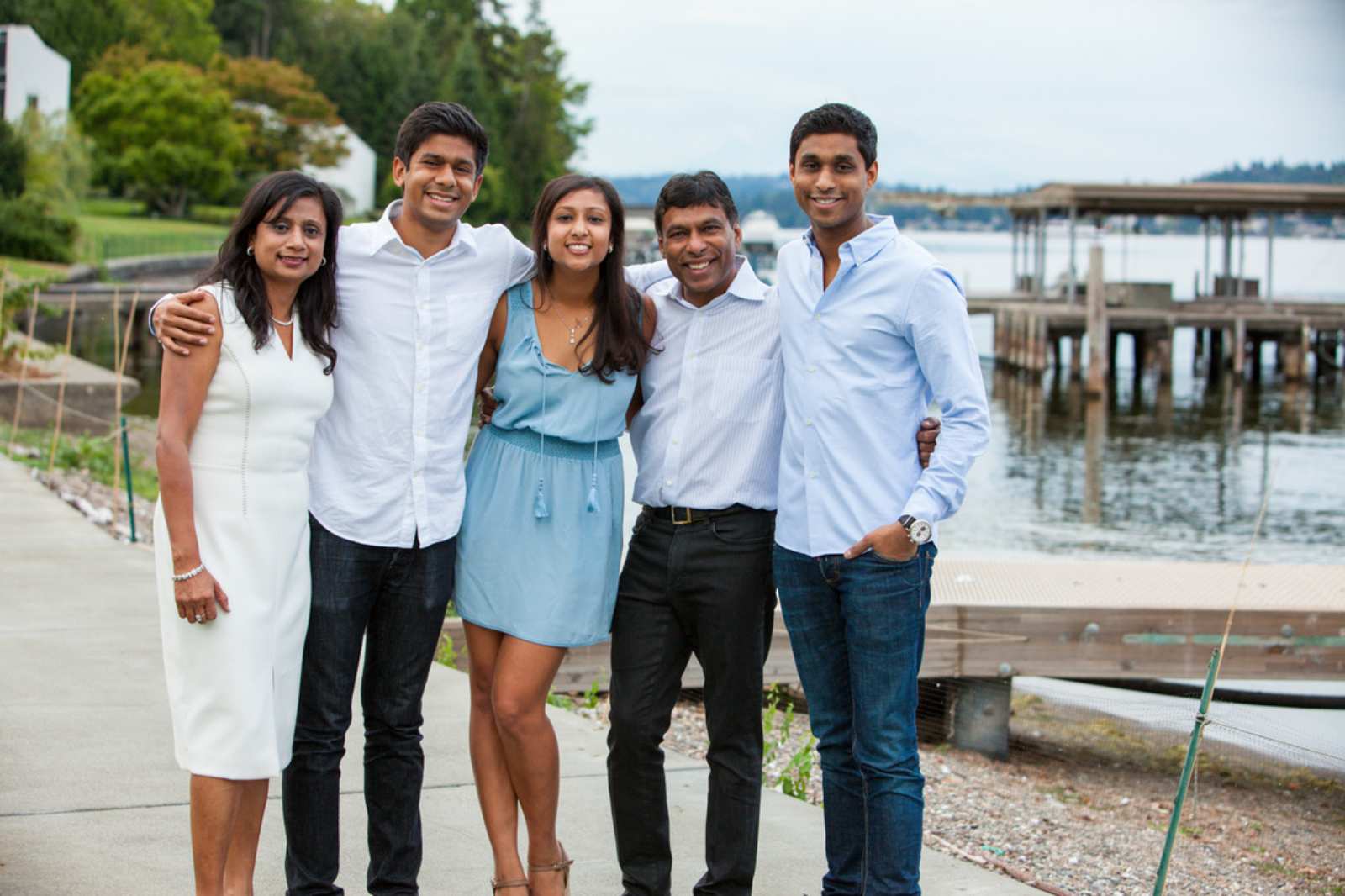
Is there strength in not being an expert in a prospective industry? “To be an expert, you have to believe in the foundation of what you’ve learned. You’re trained with a rulebook that can make it difficult to think outside of the box.” According to him, having your glass of knowledge half empty opens the possibility for innovation.
Like his questions, Jain is quite a simple man. He’s down to earth, unbothered by what people think about him or which designer clothes to wear. He has his passions and hobbies, just like anyone else. His include collecting meteorites. When asked if he has a special case or spot for them, he says: “For what?”
Born in Uttar Pradesh in India, Jain comes from a humble background that he has no problem sharing. He’s seen both extreme sides of the financial spectrum, and Jain says making lots of money was never a massive motivator in his life. “I never measure my success with money. To me, I am still the same person that I was before. Money doesn’t change you. It just amplifies who you are, to begin with.”
Jain’s philosophy for success is quite simple. “Chronic disease is an epidemic, and we should be focused on finding ways to cure it. You can always make more money, but you cannot make more time.”
This article appeared in Billionaire's Luminaries Issue. To subscribe contact

